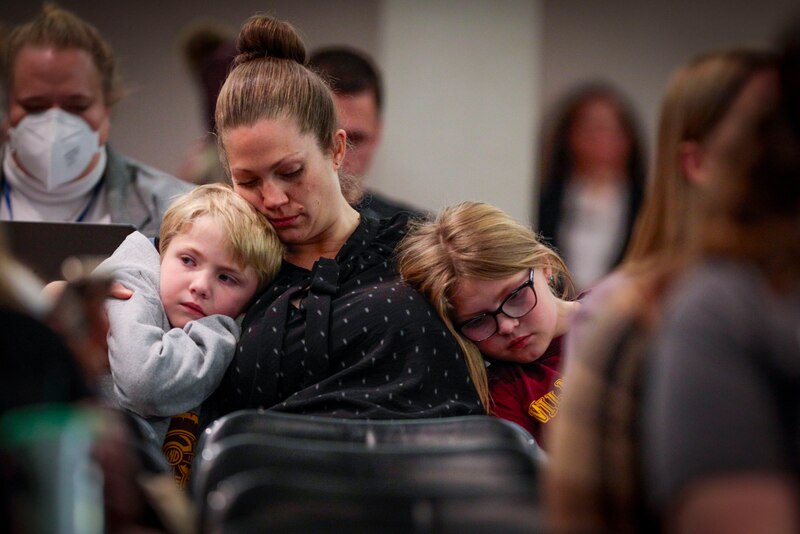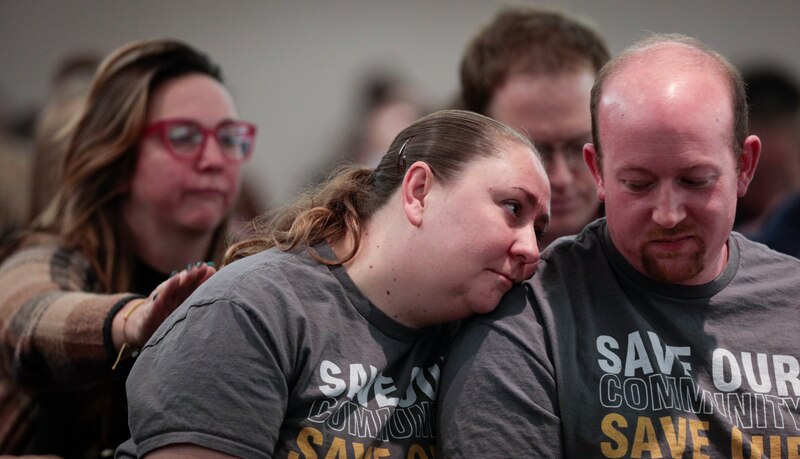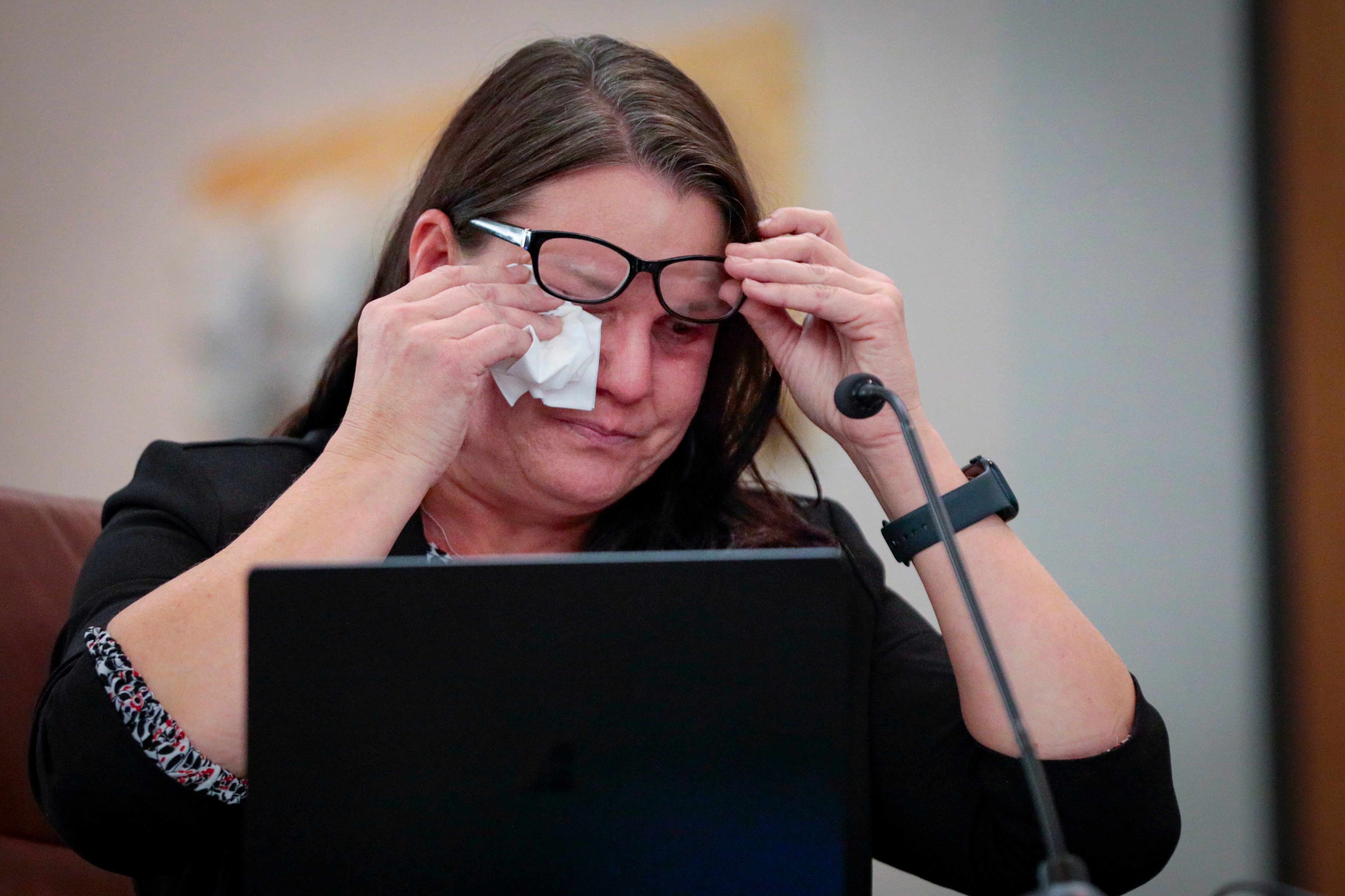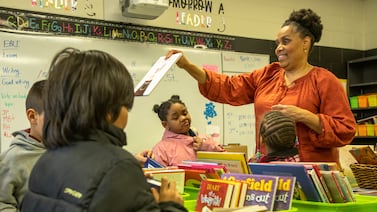The Jeffco school board unanimously approved Superintendent Tracy Dorland’s recommendation to close 16 elementary schools at the end of this school year.
The district made the recommendation in August, as part of a plan to address a trend of declining enrollment that accelerated during the pandemic.
The district has a budget deficit and now has drawn $32 million from its reserves to cover expenses this year. Leaders expect closing and consolidating the schools will save up to $12 million. The district may also add to its revenues later if it sells or leases the vacant properties.
But Dorland and board members said closing schools is not only about saving money. They also worry that the district’s small schools can’t offer equitable or rigorous programs as larger schools can.
For example, some of the schools slated for closure can’t afford more than a few teachers, so they must have students from mixed grades in a classroom. That means teachers have fewer peers with whom to collaborate, must make several lesson plans, and may juggle multiple curricular resources.
As other school districts do, Jeffco funds its schools largely based on student counts; thus small schools get less operating funds than do larger ones. The district, in turn, gets state and federal operating dollars also per student. Subsidizing small schools draws money from other programs.
Jeffco, the state’s second-largest district, had 14% fewer children under 18 in 2020 living within its boundaries than it had in 2000. District enrollment has been falling for many years. The current estimate of students this fall is 77,205, down from 87,700 in 2000.
The district selected the 16 schools using three criteria. They all had fewer than 220 students as of Aug. 15, or were using less than 45% of their building’s capacity at the time. Each school also had to be near another one that could accept the students.
In total, the district has said the closures will displace almost 2,600 students and affect the equivalent of about 422 full-time jobs.
The recommended closings have left some parents with a lot of questions and worries.
Some wonder if the designated receiving school will have capacity for all the new students. Others worry that academics weren’t considered, and neither was the programming of the schools.
One of the schools on the closure list, Colorow, had just won its status as an International Baccalaureate elementary school this fall, for example, one of just four elementaries in the district to have the program.

Another worry is that with the consolidation of middle and high schools not yet decided, some students may have their schooling disrupted more than once. The district has said it would turn its attention to secondary school plans in January and may have recommendations for those schools next year.
A report from a consultant hired to help run community engagement before the vote said many families weren’t happy, and the consultants had to adjust their approach. Many parents wanted to talk about the recommendations and ask more questions, instead of just talking about their hopes for after a transition.
Representatives of Keystone Policy Center, the district’s outreach consultant, said they’ve encountered a lot of misinformation and a lack of trust in the process.
Before the vote Thursday night, parents and community members during public comment asked the district to reconsider. Later, some shouted as the board voted ended the meeting.
The district had set aside two hours for public comment, but only needed a little more than an hour to accommodate the people who signed up.
One of those included Korey Stites, a council member in Wheat Ridge, who criticized the process for engagement and said the district didn’t communicate with city officials like him.
He said that if a more engaged process resulted in his community’s schools closing, he would be able to accept it.
“What I can’t get on board with is the fact that our opinions didn’t matter,” Stites said.
Other parents asked the board to table the recommendations until the district could find other ways to save money, such as cutting administrative staff or salaries and implementing furloughs. Another parent asked the district to first consult with an equity or anti-racism expert who could offer feedback on the plans.
In approving the closures, school board members noted they amended their resolution to include new requests from district staff including the creation of a transition plan, a new plan for allocations for Title I and at-risk students, an analysis of transportation needs and the adjustments required, and an engagement plan for creating recommendations for what to do with empty or underutilized buildings. Board member Paula Reed refuted criticism that the community engagement before the vote, including at least 16 hours of public comment, was a mere performance.
“It means a great deal to hear people speak so passionately for their schools. It makes this harder and that’s probably how it should be,” Reed said. “It shouldn’t be an easy thing to do.”
Yesenia Robles is a reporter for Chalkbeat Colorado covering K-12 school districts and multilingual education. Contact Yesenia at yrobles@chalkbeat.org.








